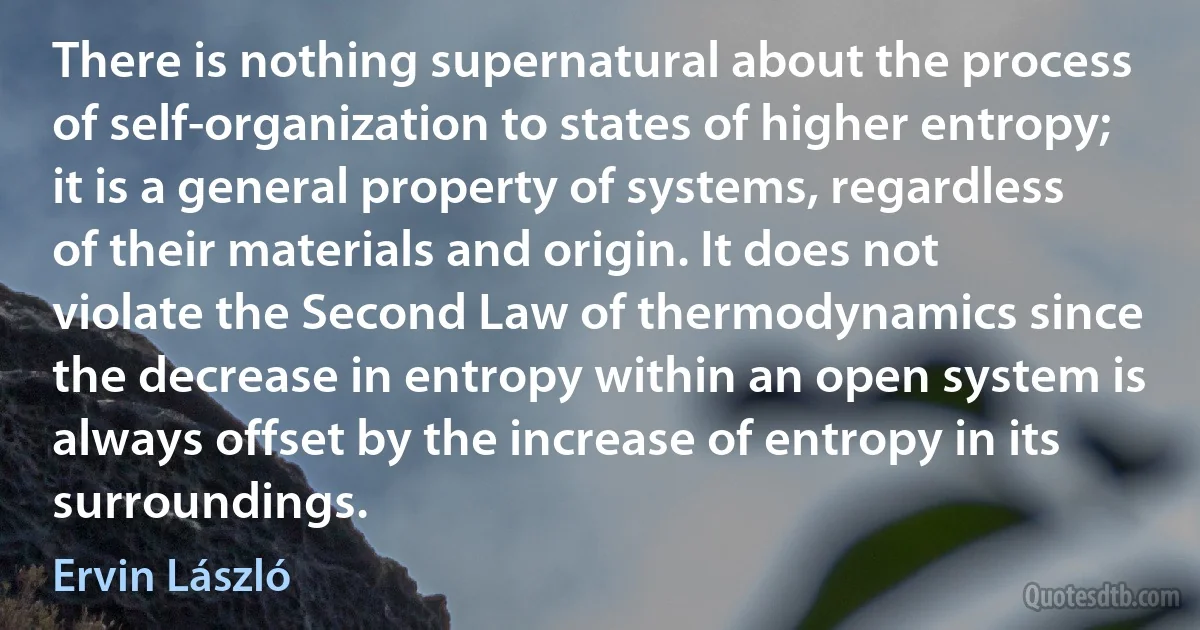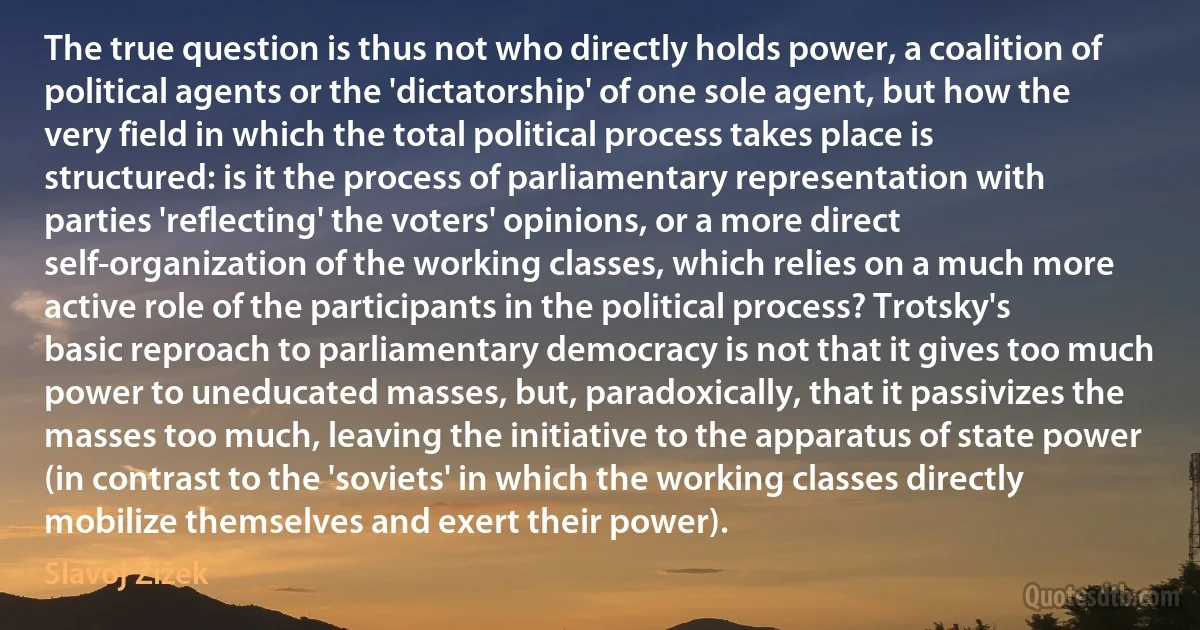Self-organization Quotes
The higher the intellectual potential of people, the broader their tendency to self-organization, the more of its functions will be delegated by the government to other communities. Quite true is also the argument that the more responsibility and competence the government delegates to the society, the more is realized its ability to self-organization.

Tigran Sargsyan
In this book I try to show how models of self-organization can be applied to many economic phenomena - how the principle of "order from instability," which explains the growth of hurricanes and embryos, can also explain the formation of cities and business cycles; how the principle of "order from random growth" can explain the strangely simple rules that describe the sizes of earth quakes, meteorites, and metropolitan areas. I believe that the ideas of self-organization theory can add substantially to our understanding of the economy; whatever their ultimate usefulness, these ideas are very exciting, and playing around with them is tremendous fun.

Paul Krugman
I learned in my Ph.D. the discipline I needed to be successful. Most boxers are not that disciplined. They have talent, but the self-organization - the ability to schedule yourself and your priorities - is lacking. My studies were about the control of training on both the psychological and the physical side.

Wladimir Klitschko
If biologists have ignored self-organization, it is not because self-ordering is not pervasive and profound. It is because we biologists have yet to understand how to think about systems governed simultaneously by two sources of order. Yet who seeing the snowflake, who seeing simple lipid molecules cast adrift in water forming themselves into cell-like hollow lipid vesicles, who seeing the potential for the crystallization of life in swarms of reacting molecules, who seeing the stunning order for free in networks linking tens upon tens of thousands of variables, can fail to entertain a central thought: if ever we are to attain a final theory in biology, we will surely, surely have to understand the commingling of self-organization and selection. We will have to see that we are the natural expressions of a deeper order. Ultimately, we will discover in our creation myth that we are expected after all.

Stuart Kauffman
I did spearhead the introduction of the Internet in countries like Russia, the former Soviet Union, because it is a very open system of communication. I think it has great potential for self-organization and self-organization is very much at the heart of an open society. The Internet is sort of a medium of open society. However, it can also be a medium of control and so we have to be careful it doesn't destroy you.

George Soros
Francisco, an experimental and theoretical biologist, studied what he termed "emergent selves" or "virtual identities." His was an immanent view of reality, based on metaphors derived from self-organization and Buddhist-inspired epistemology rather than on those derived from engineering and information science.

Francisco Varela


